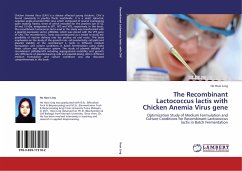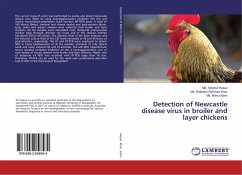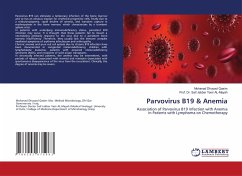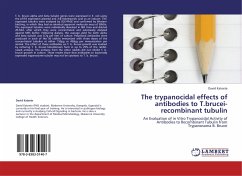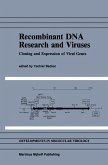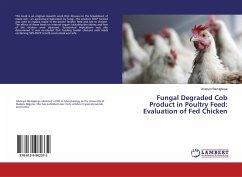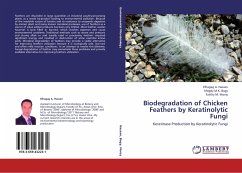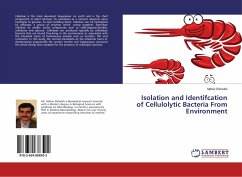Chicken Anemia Virus (CAV) is a disease affected young chickens. CAV is found commonly in poultry flocks worldwide. It is a small, spherical, negative single-stranded DNA virus which comprised of several overlapping open reading frames, three of which encoded for the proteins size of 52, 24 and 13 kDa, designated as VP1, VP2 and VP3, respectively. In this book, the recombinant Lactococcus lactis used in the study was transformed with a plasmid expression vector, pMG36e, which was cloned with the VP3 gene of CAV. This recombinant L. lactis was constructed as a model to study the possibility of vaccine delivery into the poultry via oral route. This book emphasizes on the study of the growth rate, cell productivity, cell yield and plasmid stability of the recombinant L. lactis in different medium formulation and culture conditions in batch fermentation using shake flasks culture and bioreactor system. The study of plasmid stability of recombinant pMG36e-VP3 including segregational instability and growth rate difference of plasmid-bearing cells and plasmid-losing cells in different medium formulation and culture conditions was also discussed comprehensively in this book.
Bitte wählen Sie Ihr Anliegen aus.
Rechnungen
Retourenschein anfordern
Bestellstatus
Storno

